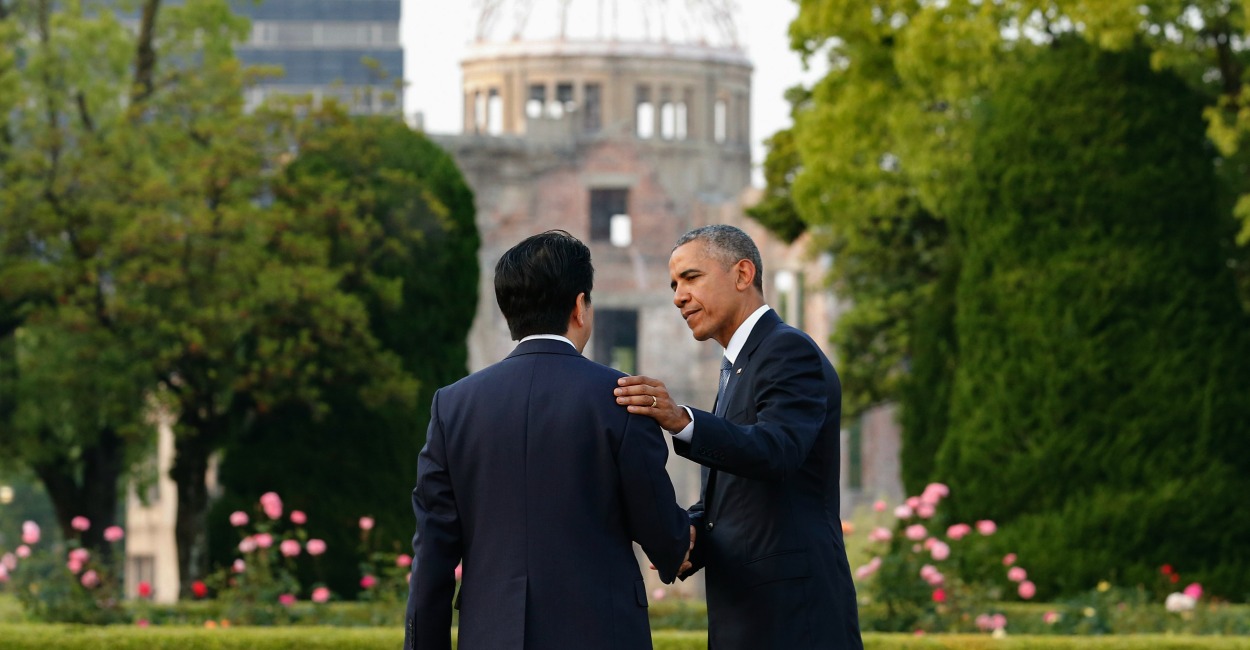
President Obama made his first visit to Hiroshima as president of the United States, where he stated, “We must have the courage to escape the logic of fear and pursue a world without [nuclear weapons].” As the only country that has used nuclear weapons, and as the top major power to possess nuclear weapons, this is a powerful promise for the United States to make to the world, especially when made from a land that they once bombed. Japan, as the country that bore witness to that day, has a responsibility to walk this path with the United States. We must both stride toward the ideal of total nuclear disarmament.
Having reached the final half-year of his final term, Obama cannot leave this visit as just a simple ceremony and part of his own personal political legacy. From the bottom of my heart, I want this to be not only a message but also a move toward the ratification of the Comprehensive Nuclear-Test-Ban Treaty* and a reopening of U.S.-Russia nuclear disarmament negotiations, or simply put, a concrete course of action.
The impression I get is that Obama considers the use of the atomic bomb to be justified — even now. However, in this short time, he has already visited an atomic bomb museum and spoken with representatives of atomic bomb victims. The significance of the president, the highest-ranked of all U.S. command officers with the authority to press a button and launch nuclear weaponry, coming to take a direct look at the terrible consequences is huge. There is an expression that describes the inhumaneness of the atomic bomb: “For man holds in his mortal hands the power to abolish all … forms of human life.” From now on, I would like for us to convey this in our own words.
In 2009, President Obama made a speech in Prague, where he called for “a world without nuclear weapons.” Then, in a revolutionary decision, he was awarded the Nobel Peace Prize, raising hopes for nuclear disarmament even further.
However, since then, the United States’ relations with Russia have only worsened, due to the crisis in Ukraine, and negotiations to reduce nuclear weaponry have ground to a halt. In fact, Russia’s use of nuclear tactics has increased, and North Korea has enforced the continued testing of nuclear weapons. Contrary to Obama’s wishes, the threat of nuclear weaponry has without a doubt increased.
The United States itself has plans to spend about 110 trillion yen ($1.04 trillion) over the next 30 years to modernize their nuclear triad of strategic bombers (which carry warheads), intercontinental ballistic missiles and nuclear submarines. The Obama administration has stated that they are not reinforcing their strength, but Russia and China both consider this plan a threat, and we cannot deny the possibility that both countries may move toward further military expansion.
We cannot delay the abolition of nuclear weapons a single moment longer. The United States needs to start by first addressing the aforementioned contradiction.
As his colleague, Prime Minister Shinzo Abe stated to Obama, “No matter how long and how difficult the road will be, it is the responsibility of those of us who live in the present to continue to make efforts [toward nuclear disarmament].” However, contrary to these words, we depend on the United States’ “nuclear umbrella” for our national security, a clear distinction between the state and the nuclear bomb victims who wish for the immediate and total abolition of nuclear weapons.
In his speech, Abe appealed to the strength of the union between Japan and the United States. I am worried we are backpedaling away from the path to peace with the Abe administration’s establishment of national security laws and with the State Secrecy Law.
As the sole country bombed by a nuclear weapon during wartime, Japan must stand at the vanguard and lead the world toward nuclear disarmament. So we do not repeat the same mistakes, the Japanese government must first come to its senses and change its conduct. As Abe said, “This is the only way to respond to the feelings of the countless spirits — victims of the atomic bombs in Hiroshima and Nagasaki.”
*Editor’s note: The Comprehensive Nuclear-Test-Ban Treaty is a treaty banning all nuclear explosions — everywhere and by everyone. The treaty was negotiated at the Conference on Disarmament in Geneva and adopted by the United Nations General Assembly. It opened for signature on Sept. 24, 1996.

Leave a Reply
You must be logged in to post a comment.